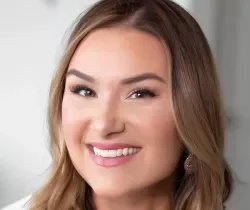Last year put life into perspective for a lot of us. In a previous blog, I talked about being an agent of change. Now I want to discuss how fast change can bring positive results within your business events models. Whether you dealt with navigating through chaos, strengthening your resiliency muscles or just survived, we all did one thing together and that was change. As much as we changed personally, it goes without saying that the events and hospitality industries also changed significantly.
In what may be an unpopular opinion, I believe that this forced change has a silver lining. We all were thrown into chaos, but we also had to take a good hard look in the light of day at the business events model that hadn’t changed much over the last decade. Trade show floors still held 10 x 10 booths with tables between attendees and exhibitors. Hybrid was dabbled in, but not widely adopted by event planners and organizations alike. Leading up to early 2020, I watched several organizations project annual low attendee numbers and lack of engagement from newer generations. I worked with a number of companies that were continually trying to find new business models for the future.
With adult learning styles changing rapidly, advances in technology such as AR and AI breaking through and attendees embracing experiential edu-tainment more than ever, could we have continued the way we were going? Possibly, but I would say the pandemic has forced us to completely rethink the business of events and event execution in new and exciting ways. Some examples include:
Looking at Old Models and Systems
In this new normal, I believe we need to take a hard look at our technologies and capabilities to really give attendees a better experience. I’ve spoken to many event planners that feel more connected to their attendees than ever through thoughtful surveys that identify attendee profiles and needs. The Untethered conference, produced by Hubb, was recently held online and attendees were asked to take a test in advance of the event to identify their learning and connection/networking styles. They were then given a personalized path on how they could learn and engage throughout the virtual conference. These breakthroughs are just what we need in this new eventscape! No more guessing or using old models — now is the time to really get in touch with your attendees.
Forced Learning and Education
Whether you researched more than 30 virtual platforms (raising my hand!) or your team went virtual and you had to find new systems of connection and engagement, most likely you found new ways of learning more about yourself, your work systems and your capabilities in the last 12 months.
Attendees’ learning styles are also changing as they work from home and have an even lower attention span. As virtual expands and your audiences have more choices and flexibility, now is the time to adapt with them! One way to do this is to provide options. I often talk to colleagues with successful hybrid or virtual events that provide an array of live and on-demand choices. Events with more choices on how attendees engage, network, interact and entertain seem to be the most effective in reaching their goals.
Changes Post-Pandemic
I believe that most organizations won’t bounce back to their old models immediately. I think that hybrid, in-person, small groups, virtual, etc., will lead to events being smaller and held more frequently and regionally — at least at first!
I believe that the workforce has changed and attendees will have more choices in their working environments. They will be choosier on which events they go to in person and their time and energy will be more valuable to them on the virtual front as well. Those events that truly invite connection and experiences will reign supreme in this new environment, and planners should keep their minds focused on abundance choices and exciting new options.
No matter what 2021 is looking like for you, the event planner profession has changed just as much as the business of events. Planners will need to be more strategic and engagement-focused than ever. Content no longer will reign as king alone. Expect experiential design to take over as queen in the future.



Add new comment